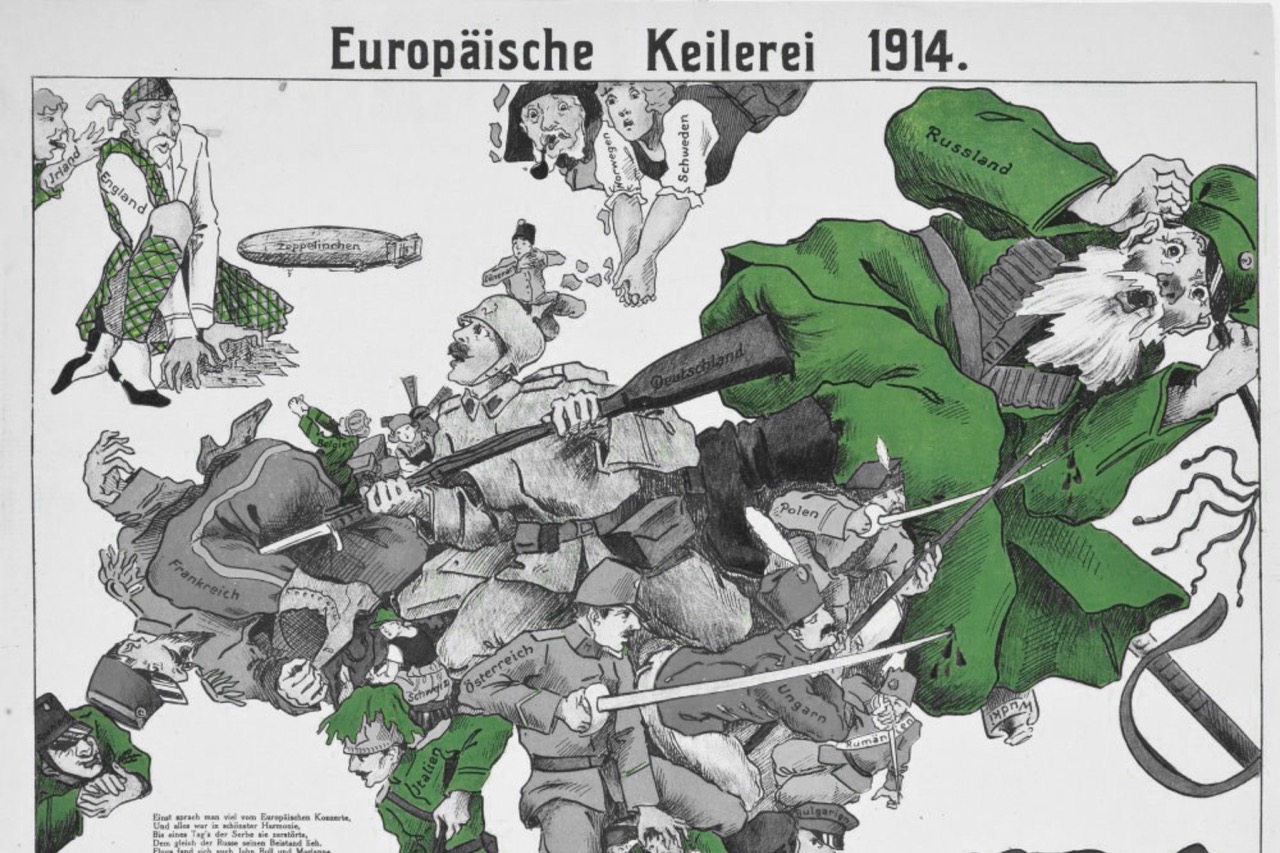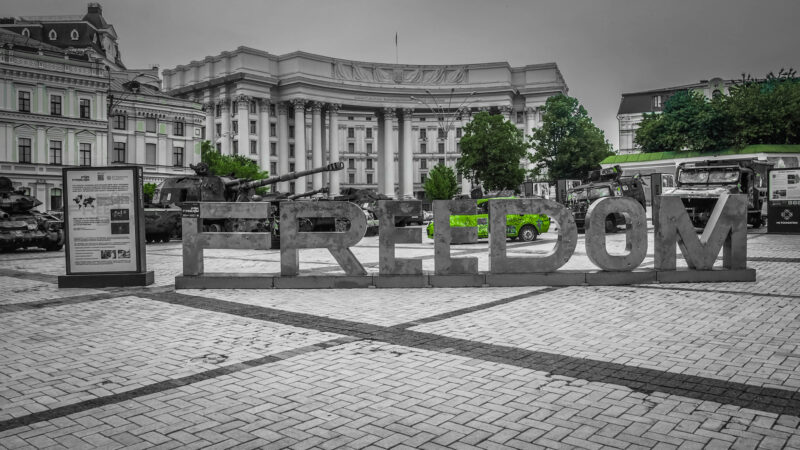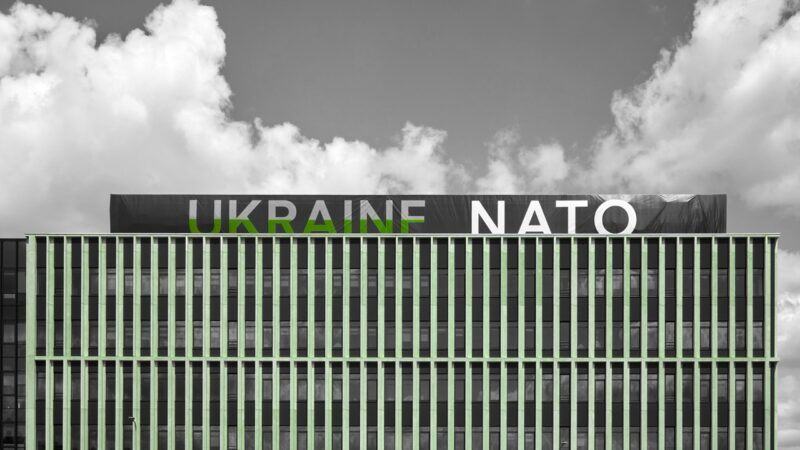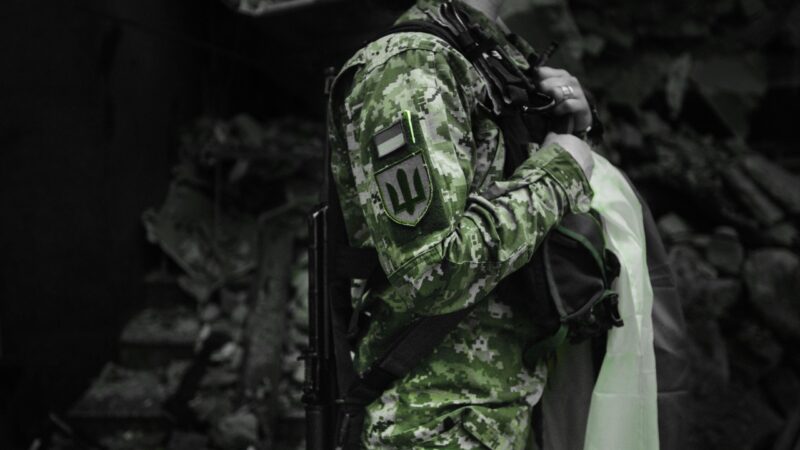The “subaltern empire” and Russia’s three steps towards the war

Russia’s full-scale invasion of Ukraine in 2022 became both a shock for many observers and an embarrassment to those who claimed Moscow to be a rational actor with whom one could strike long-term deals. Yet, those with a more in-depth understanding of Russian domestic politics and history have always known that Russia’s long-term insecurities do not lie in the domain of hard security but in the realm of identity and recognition, which it has long sought from its Western others.
Russia’s geographically and historically peripheral position caused it to develop a “love-hate” relationship with the West.
At many points Russia, since the dawn of its imperial ambitions, tried to imitate the West by borrowing its phraseology and ideas and interpreting them according to its own understanding. This was ultimately meant to demonstrate that Russia belongs in the prestigious “Western club.” In the 21st century Moscow has used Western language to present itself as a regional leader in the so-called “near-abroad,” which it wished the West to recognize as Russia’s “sphere of exclusive interest.”
Seen from a comparative perspective, however, Russia’s peripheral position has not been particularly unique. Many Eastern European nations have sought Western attention. In the past, Russia too had to compete with other would-be hegemons of Eastern Europe, such as Poland, for the role of a civilizing power in the region.
A new understanding of international relations
Over the years, the role of identity and recognition in international relations (IR) studies has been growing. During the Cold War, IR discussions tended to be dominated by realist notions, with a focus on hard security and materialist understandings of power and national interest. The advent of social constructivism challenged these traditional concepts by factoring in culture and identity. As for national interests, whose existence the realists and their traditional arch-enemies liberals simply took for granted, they depended on more fundamental things like national identity—namely, the collective notions shared by members of the national community as to what their nation should be like. As the Swedish social constructivist Erik Ringmar would put it, before one knows what one wants, one needs to know who one is. A country’s perception of its national interest would thus logically vary depending, for example, on whether it wants to see itself as “an empire,” a “small country,” or “just another country.”
With respect to Russia, the shift to social constructivism resulted in studies of Russian identity, of how Russians have historically understood themselves and their relations with the West, and where they placed themselves—inside or outside Europe. Thus, Iver B. Neumann’s Russia and the Idea of Europe (1996) examines this long-standing debate in Russia and shows how Russian identity was always tied to different notions (or “otherings”) of the West.
Working in the postcolonial tradition, Viacheslav Morozov developed the concept of Russia as a “subaltern empire.” Post-colonial theory explores how identities become part of the relationship of power playing out between the colonizer and the colonized. For example, the colonized may want to mimic the colonizer in order to become more like them. For the colonizer, this mimicry can become an instrument of control over the colonized.
Recognition plays a key role. The power to recognize or deny recognition of someone’s sought-after identity can be equally (or even more) important than material power. Constructivist IR scholarship demonstrates that Russia has traditionally lacked genuine recognition from the West, and as a consequence it has typically experienced existential insecurity. Historically and culturally located on the periphery of Eastern Europe, Russia always lagged behind in political development. The 20th-century Communist experiment ostensibly offered an alternative future to the entire world, but it failed, with untold violence and at a terrible cost, before the century was over.
The Russian attitude toward Europe has been described as a “love-hate” one. It is characterized by insecurity stemming from a lack of recognition and jealousy but also a deep craving and obsession. Though Russia has at times posed as a non-European, some kind of independent Slavic or “Eurasian” “civilization,” in truth very few things in Russian culture were not borrowed from the West at different times, and in many respects the Russian mindset has remained deeply Eurocentric. Though Russia was never under direct political control of the West like the post-colonial countries of Africa and Asia, as a peripheral European land—from Peter the Great to the Bolsheviks and the Russian liberal reformers in the 1990s—it colonized itself, selectively importing certain Western models.
Thus, Russia has always borrowed words and ideas from the West, and when it spoke back to Europe it still used the phraseology that had also been initially Western, regardless of whether it was the language of (Western) Christian absolutism in the 19th century or of (the equally Western) Marxist socialism. This tradition has continued into the Putin era, with Russian rulers trying to appropriate the new language of “humanitarian interventions” or “R2P” (responsibility to protect) or “European integration” to promote and legitimize their policies in the post-Soviet area.
Language has multiple functions, and they are not limited to conveying new information about the world around us. It is also a medium for social rituals through which we reproduce the social order, reinforce, or try to change our social roles. Our word choice also depends strongly on what kind of social situation we want to recreate. What is permitted in one social setting would look inappropriate in another. Russia has consistently used what it has seen as the language of great powers in an attempt to affirm its own global status, even though the way this language was used was often out of touch with the internationally acknowledged reality.
The “Eurasian Union”
Adopting a certain phraseology and manners thus demonstrates the wish to belong to a certain group. In 2011 Putin announced the future “Eurasian Union,” which would become one of many regional blocs alongside the European Union and other similar organizations such as the African Union or Mercosur in South America. Many Russian politicians and commentators picked up on this, saying “we are planning to build something like the European Union” or “we will follow the same path as the Europeans did but we will do it better than them because we are learning from their mistakes.” Before the 2014 annexation of Crimea and the start of the Russo-Ukrainian war in the Donbas, Moscow invested a lot of effort into trying to persuade Brussels and other European capitals to accept this story and to recognize the “Eurasian Union” as an equal partner to the European Union.
Of course, looking at this, impartial observers did not see “a second EU in the making” but rather Putin’s neo-imperial project. It did not have much to do with European integration and all the associated notions, like the postwar reconciliation between Germany and France or the creation of the European single market and a European security community. These details were not important for Moscow. Using the language of “European integration” simply meant that Russia remained deeply obsessed with Europe and was coveting “Europeanness” as it understood it, i.e., wanting to belong to the European “club” of great powers. In the Kremlin’s imagination, Europe was always about great powers, and never about small countries or the rules and institutions upon which European integration was built. From Moscow’s perspective, European rules and institutions were always a coverup for “grand deals” and the EU was also necessarily “somebody’s” project—German, French, or perhaps even American. It was a “sphere of influence,” not a “peace project” or a “single market.”
In this context, it did not matter that Russia’s so-called “near abroad” looked little like Europe and that many people literally laughed when the imaginary “Eurasian Union” was compared to the EU. Using “European” language was a way of asking to be accepted into the European great power club. But the Russian understanding of this “club” was very specific because of how Russia generally saw international relations. The people in the Kremlin believed that since the EU was a Western sphere of influence, the West should also recognize their own “area of exclusive interest” (the post-Soviet world or “Eurasia”).
From the Western perspective this was of course unacceptable because many people saw the “Eurasian Union” for what it was—a neo-imperial project. It was also clearly a manipulative abuse of the language of European integration. However, from the Russian perspective this abuse did not constitute a problem. In fact, for the Kremlin, being able to bend and break the rules, to change the definition of key notions and ways in which they are used would be a privilege of great powers—the only ones who, from Moscow’s point of view, possessed true sovereignty.
Responsibility to protect and[1] the “Five-Day War” against Georgia
In August 2008, during the Russo-Georgian Five-Day War, Moscow tried to appropriate the language of the R2P (responsibility to protect) norm. The Russian leadership framed the situation in Georgia’s breakaway provinces as a case of R2P, analogously to the 1999 intervention in Yugoslavia.
Although R2P originated in the UN framework, Russia viewed it as an essentially Western norm and an instrument of Western infringement on Russia’s interest. For Russia, the origins of the norm coincided with a period of weakness and concern about great power status. Moscow obviously felt that it had no say in the intervention in Yugoslavia. Furthermore, the Kosovo case also spurred the development of a new doctrine that would introduce a new understanding of sovereignty as responsibility, thus making it much more open to interventions underpinned by the logic of protecting human rights.
Therefore, while Russia had undoubtedly long been a great power in terms of its material capabilities, its normative integration into the international community had been much more problematic. In 2008 Moscow sought to demonstrate that it was entitled to use the established international language in its own sovereign manner in order to frame a conflict in its “near-abroad.” The Five-Day War was cast as an operation of “coercing Georgia to restore peace.” Moscow claimed that the situation in Georgia’s breakaway province called for a military intervention as ethnic cleansing and genocide had to be stopped. This logic was originally cast in terms of the defense of the peacekeeping force, citizens, and compatriots, and safeguarding of the international order more broadly.
After the conflict escalated, Russian officials invested significant effort into demonstrating that they used force as a last resort, with the right intention, proportional means, and reasonable prospects of success. Additionally, Moscow kept referring to Western “abuses” of the humanitarianist discourse and the “unlawful” military intervention in Yugoslavia and, in contrast to that, presented its involvement in Georgia as being in full compliance with international law. However, the Kremlin was also careful in distinguishing Russia’s own concept of R2P from the UN framework, with the former allegedly being grounded in Russia’s Constitution. Underlying Russia’s narrative was the premise that the Russian concept contained a revised definition of “responsibility”—namely, this definition permitted a state to undertake unilateral action in order to protect the lives of its citizens living in another state.
In the end, Moscow did not manage to provide the international community with credible evidence in support of its case. The Independent International Fact-Finding Mission on the Conflict in Georgia (IIFFMCG) concluded that Russia’s accusations of genocide and ethnic cleansing against Georgia had neither legal basis nor were they supported by factual evidence on the ground.
Poland and the rivalry over Ukraine
With the current war in Ukraine, justifications used by Russia continue to invoke similar notions. Moscow claims to protect Russians or Russian-speaking citizens of Ukraine using the slogan “We do not abandon our people” (svoikh ne brosaem). There are also frequent voices citing the invasion of Afghanistan or Iraq and suggesting that “this is what all great powers do.” Finally, Russia is constantly referring to its pivotal myth of defeating Nazism.
In a sense, this seems to be a kind of cultural and political resistance to globalism and specifically to the global West. Russian propaganda presents Nazism as a Western product and presents the “East”—in particular, the USSR—as the only force that was capable of standing up to it. The role of Western powers like Britain and the US, and their contribution to the fight against Nazism, is downplayed or omitted, as is the Soviet-Nazi friendship pact of 1939. However, ultimately this rhetoric about World War II and victory over Nazism still contains a masked claim for Western recognition. Moreover, Russian critics of the so-called “Nazi regimes” in neighboring countries continue to rely on many notions of humanity, freedom, and tolerance, which were developed in the West.
Generally, the quest for Western recognition is something that can be seen as being typical for Eastern European countries, including those that identify as “Central European”. Historically, Poland and Russia have not only sought recognition but competed over which was to be seen as more “Western.” The idea of being “Western” also became a discursive instrument for dominating nations that found themselves situated farther to the East. Symbolically, in Henryk Sienkiewicz’s popular 19th-century novel In Desert and Wilderness (W pustyni i w puszczy) Staś Tarkowski’s father takes part in colonizing Egypt and Sudan under British rule.
Arguably, Poland and Russia have rivaled for being viewed as “Western” throughout most of the modern times. In this debate they also needed the support of Western fans. Voltaire seems to have demonstrated certain sympathies towards Russian absolute monarchs and Catherine the Great as the so-called civilizer of the “wild” Eastern European lands. Rousseau, on the other hand, was clearly drawn toward Poland-Lithuania and its constitutionalism. In the time following the partitioning of the Polish-Lithuanian Commonwealth, the 19th-century Polish intelligentsia complained to the political and cultural milieux in Paris about being more civilized yet still occupied by “barbarian Russians.”
Notably, this debate did not assign an independent role to Ukraine. Supposedly, it was less “Western” than both parties involved but it also became an object of dispute between the Poles and the Russians. For Juliusz Slowacki, deemed one of the greatest Polish poets of all time, or for romanticists like Antoni Malczewski and Seweryn Goszczyński the notion of a “Polish Ukraine” was part of the dream of reconstituting their motherland in the pre-partition borders. Nikolai Gogol, on the other hand, portrayed what came to be seen by many as a “Russian Ukraine.” Regardless, in the end there was not much place left for a “Ukraine” that would be actually Ukrainian.
In Polish one can render “in Ukraine” either as “w Ukrainie” or “na Ukrainie,” both forms being grammatically correct. However, the “na” is normally chosen when speaking of regions or provinces, not countries (e.g., na Mazurach, na Podlasiu). Therefore, this use of “regional” propositions with names of countries that were historically interpreted as provinces of Poland, like Ukraine or Lithuania, also raises the issue of symbolically recognizing them in the full extent as independent countries.
Other languages in the region have similar political issues. According to an etymology that is popular with Ukrainian linguists, the word “Ukraine” comes from the word “краяти” kraiaty (to cut), and in that sense it suggests a “separate territory” (literally a land that has been “cut off”). It could also be derived from the Old Ruthenian krai, meaning “(our) land.” Contrary to that, some Russian linguists tend to believe that the name is derived from something like okraina (periphery), thus including Ukraine into Russia as its “borderland.” The Polish idea of the Kresy Wschodnie (Eastern borderlands), including (parts of) Lithuania, Belarus, and Ukraine, looks like a close counterpart.
The Polish-Lithuanian state was historically known as the “commonwealth of two nations,” though from a modern perspective there were many more, and the Ruthenians (ancestors of modern Belarusians and Ukrainians) are distinct from modern Lithuanians. In the Commonwealth, Polish culture came to play a dominant role over time and the ethnically Polish lands were often seen as the core, while the territories of modern Ukraine, Lithuania, and Belarus were increasingly perceived as peripheries. Sometimes these peripheries were even represented as being truer to the Polish spirit than the “core.” However, all in all these spaces were Polish borderlands—the Polish “Kresy” rather than separate nations.
Following World War I, the idea of the Polish Kresy, a Polish Lviv (Lwów), and a Polish Vilnius (Wilno), remained in the mainstream. Nationalist myths were very popular, such as the myth of the Lwów Eaglets, referring to Polish child soldiers who defended Lviv (Lwów) during the Polish-Ukrainian war of 1918–19. The meaning of the term was later extended also to those who fought the Bolsheviks in the war between the (re)established Polish republic and Soviet Russia. These were all important elements of a mythology that narrativized Ukraine as a part of Poland’s history but not as an independent subject.
Poland and Russia have been historically similar not only with respect to their recognition claims and their desired self-image as civilizing powers in “Eastern Europe” but also in how they imagined the countries in between them as their “borderlands” or “peripheries.” From the Russian side, the Cold War period did not bring much change. Thus, Ewa Thompson, author of Imperial Knowledge: Russian Literature and Colonialism, remarks that the Soviet Russians could actually experience an inferiority complex vis-à-vis their “Eastern European satellites” like Poland or Hungary or even Soviet Lithuania but never vis-à-vis Ukraine.
Since Ukraine’s independence in 1991, Russia has obviously experienced phobias about Ukraine, which it still considered its “periphery,” as it became more “Western” than the former imperial and Soviet Russian “center” and did so independently of Russia; the farther Ukraine distanced itself and turned toward Europe, the more the legitimacy of Moscow’s claims to rule over Ukraine was undermined. The craving for recognition and the rivalry to be seen as “Western” and a civilizing power in the region are thus the ultimate origins of the present war. The nations of East-Central Europe have long competed for Western attention. Perhaps present-day Ukraine could also be compared, in some sense, to nineteenth-century Poland, whose intelligentsia made appeals to the Western public, complaining about having been partitioned and occupied by “barbarians.”
Conclusion
As seen from the quick comparison with Poland, the importance of the Western gaze and its desperate quests for recognition make Russia a typically Eastern European country – and very far from being unique in that respect. Love or hate, Russians are obsessed with the West and cannot define themselves without it. At the same time, the competition for Western attention in East-Central Europe is naturally increasing. This time it is Ukraine and Russia, not Russia and Poland which seem to be competing.
It seems that following the Cold War, the self-proclaimed “Central Europe,” including Poland, managed to distance itself from the stigma of the “East,” but perhaps this assessment is also somewhat too optimistic. It remains to be seen whether Ukraine can repeat the “Central European” move on today’s mental maps. So far, it has been assessed as a “relatively civilized, relatively European” place.
For Russia, in retrospect its three recognition claims became three steps toward a big war in Europe. One could argue that in some morbid, perverted sense Moscow has actually achieved its goal. Russia is back in the Western gaze—as Europe’s greatest monster of the new century. In terms of recognition, this may be the best it can hope for.
Note: to read more about subalternity, discourse, and recognition, please see: Danijela Čanji and Aliaksei Kazharski, “When the ‘subaltern empire’ speaks: On recognition, Eurasian integration, and the Russo-Georgian war,” Eurasian Geography and Economics, 2022, https://www.tandfonline.com/doi/full/10.1080/15387216.2022.2040375






“Russia’s long-term insecurities do not lie in the domain of hard security but in the realm of identity and recognition, which it has long sought from its Western others.“. The only thing Russia has sought control over is foreign territory. Keeping in mind the Mao was on the Kremlin payroll from 1925, during the past 100 years, this thuggery has been at the expense of 100 million.